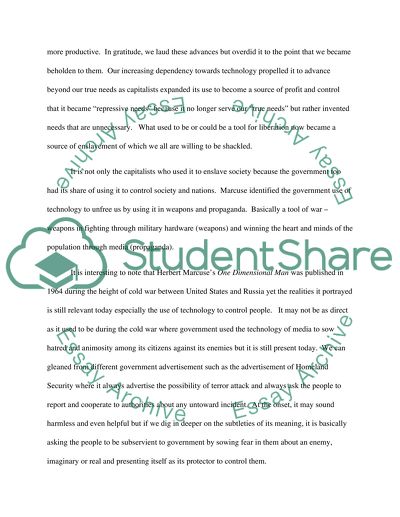Technological rationality and social control ( it could be revised) Term Paper. Retrieved from https://studentshare.org/philosophy/1477746-technological-rationality-and-social-control-it
Technological Rationality and Social Control ( It Could Be Revised) Term Paper. https://studentshare.org/philosophy/1477746-technological-rationality-and-social-control-it.


